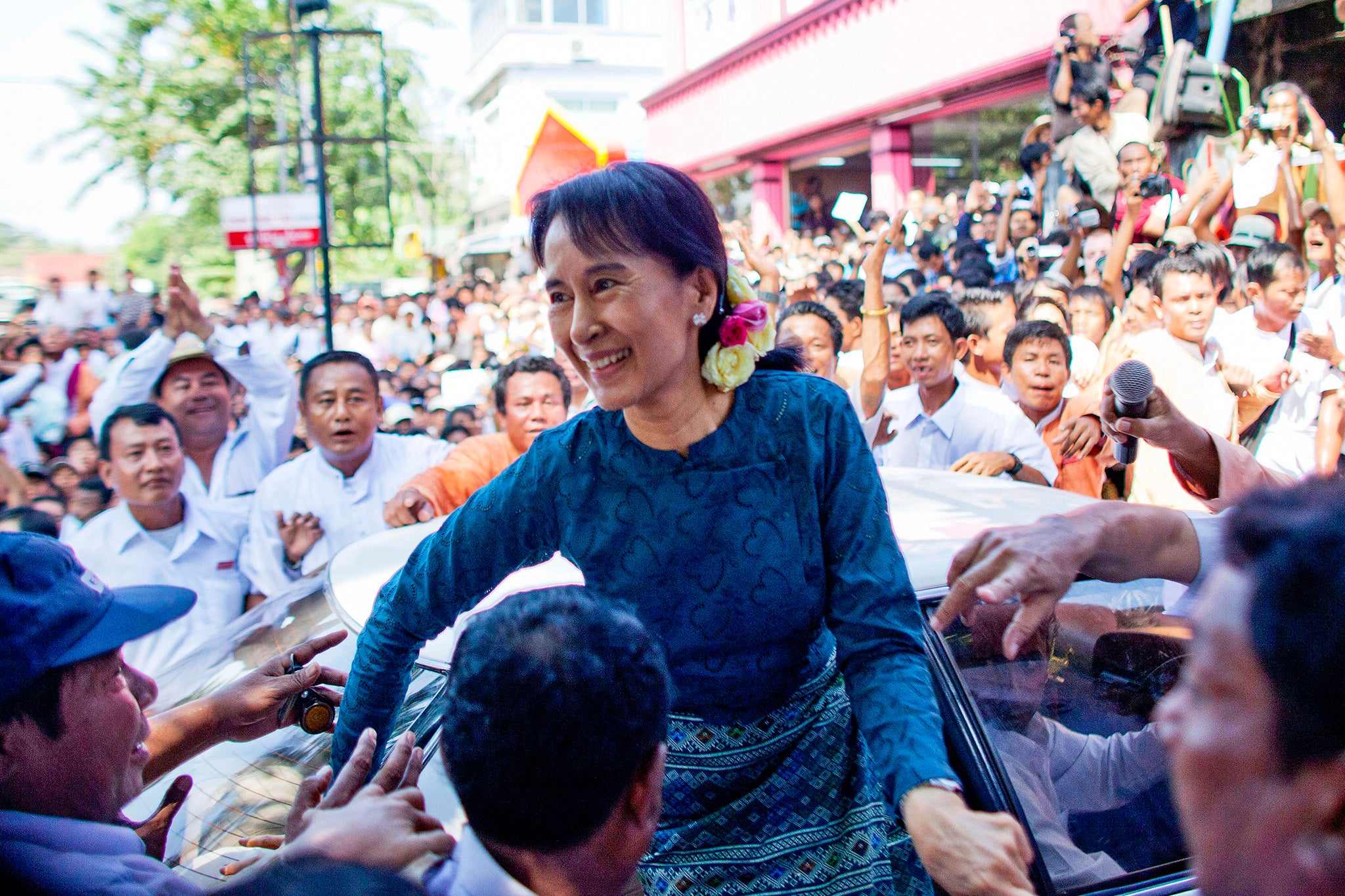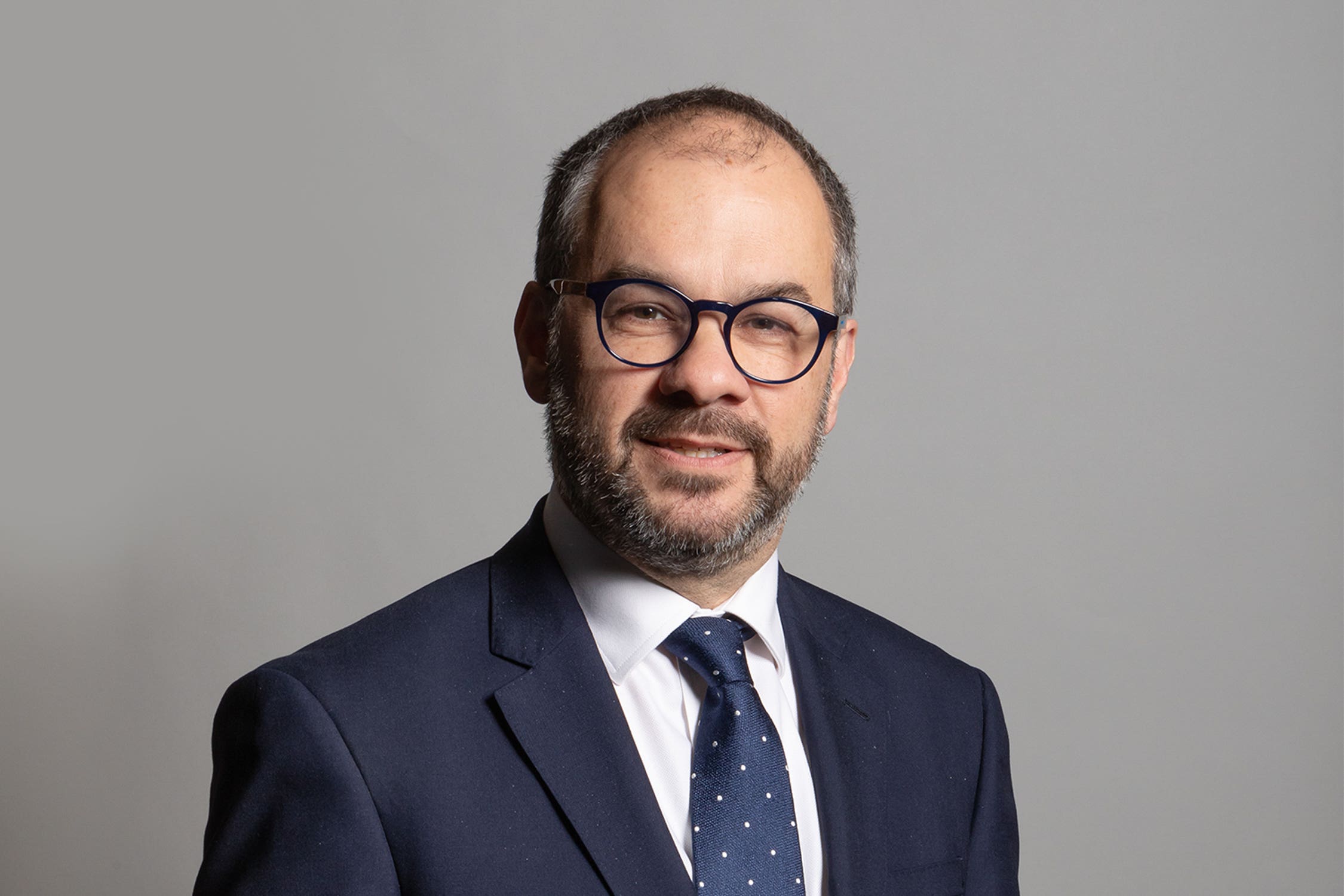Ex-minister who witnessed ‘horrible’ Myanmar military violence joins calls for Aung San Suu Kyi’s release
Paul Scully, whose family left Myanmar for Britain, saw ‘horrible things’ as Rohingya Muslim minority suffered violence and persecution
Your support helps us to tell the story
From reproductive rights to climate change to Big Tech, The Independent is on the ground when the story is developing. Whether it's investigating the financials of Elon Musk's pro-Trump PAC or producing our latest documentary, 'The A Word', which shines a light on the American women fighting for reproductive rights, we know how important it is to parse out the facts from the messaging.
At such a critical moment in US history, we need reporters on the ground. Your donation allows us to keep sending journalists to speak to both sides of the story.
The Independent is trusted by Americans across the entire political spectrum. And unlike many other quality news outlets, we choose not to lock Americans out of our reporting and analysis with paywalls. We believe quality journalism should be available to everyone, paid for by those who can afford it.
Your support makes all the difference.A former minister whose family left Myanmar for Britain has added his voice to growing calls for the release of Aung San Suu Kyi, who is imprisoned by the dictatorship there.
Paul Scully said her role as the figurehead for the campaign for democracy in the country was “both why she remains in prison and why we should keep pushing for her release”.
His comments come after three former UK foreign secretaries called for the 80-year-old to be freed, warning she was being held on trumped-up charges and deserved another chance to lead her country.
Placed under house arrest for 15 years between 1989 and 2010 before she was finally released, her fight for democracy made her a global figure. She was awarded the Nobel Peace Prize in 1991.
But she has become a deeply divisive and controversial figure after she refused to speak out against her country’s extreme violence and ethnic cleansing against its Rohingya Muslim minority.
Her fall from grace is explored in a new Independent TV documentary, Cancelled: The rise and fall of Aung San Suu Kyi, which explores her life and the plight of Myanmar.
Watch: Cancelled: The rise and fall of Aung San Suu Kyi Documentary on Independent TV

Mr Scully, the Conservative member of parliament for Sutton and Cheam from 2015 to 2024 who also served as Theresa May’s trade envoy to Myanmar, said Ms Suu Kyi’s time as the country’s de facto prime minister would forever be marred by her dismissal of the Rohingya people and her complicity in their repression.
“The military now rule with impunity… campaigning for her release is the right thing to do and an important step back to opening up the country which has strategic importance given its proximity to China.”
Mr Scully’s told The Independent his grandfather had been in charge of the workers who scuttled the docks in Rangoon, as it was then known, during the Second World War to prevent the Japanese coming in.
His father moved to the UK in the 1950s after seeing the direction in which the country was going, he said, followed by many other members of the family in the decades that followed.
His aunt had a family friend sent to the notorious Insein prison in the capital on trumped-up charges, he said, “and it is a place which can, as it did for him, turn your mad, turn you insane. It totally broke him and he was never the same man again”.
Ms Suu Kyi has been held in prison since the military seized power in a coup in February 2021, a move that plunged the country into armed conflict, with a number of rebel groups now fighting the Myanmar military.

The next year she was convicted of offences ranging from treason and corruption to violations of telecommunications law, charges she denies. As a result, she faces being kept in detention for the rest of her life.
Although details of her imprisonment have been conflicting, it is thought she has been kept in a cell in a prison in Naypyidaw, north of Yangon, formerly Rangoon.
Ms Suu Kyi, who studied at Oxford University, married British lecturer Michael Aris and raised her sons Alexander and Kim in the UK before going back to Myanmar in 1988.
Following elections in 2015, the military junta allowed Ms Suu Kyi to become the de-facto head of government but only if they kept the key ministries of home affairs, defence and border control, alongside the military budget.
Two years later, in 2017, the military junta cracked down on dissent in Rakhine State among the Muslim Rohingya community.
Mr Scully said he saw first-hand the violence suffered by the Rohingya.
“I was actually on the other side of the border with Bangladesh, when the Rohingya were coming across the border,” he explained. “There were about 10,000 people came across in the week that I was there. I saw Suu Kyi on television, saying ‘there’s nothing to see here’. And then 20 minutes later, I was right on the water looking at a column of smoke where another village had been burned.”
“I saw some horrible things. I saw a man with the back of his head smashed in by a machete… and I met a woman whose son had been castrated and beheaded by militia groups.”
He had earlier met Ms Suu Kyi when she was preparing to become de facto prime minister.
“I noticed then that the stubbornness that had made her an amazing campaigner, was also a weakness. Because she expected so much out of her MPs, in their daily and weekly lives that they were never going to be able to meet that bar that she was setting,” he said.
“But despite all of that ultimately she wants a truly democratic Burma,” he added.
He said he hoped that Myanmar’s future would see a “democratically elected government that can, as it is called the Land of Smiles, let those smiles come out. It is a lovely place and people need to know about it.”
In April a spokesperson for the military junta claimed that Ms Suu Kyi had been moved to house arrest, although no details were given.
Her younger son, Kim Aris, said that no one outside of military personnel has seen her for a long time, and that a number of underlying health issues have been only seen to by military doctors.

Join our commenting forum
Join thought-provoking conversations, follow other Independent readers and see their replies
Comments